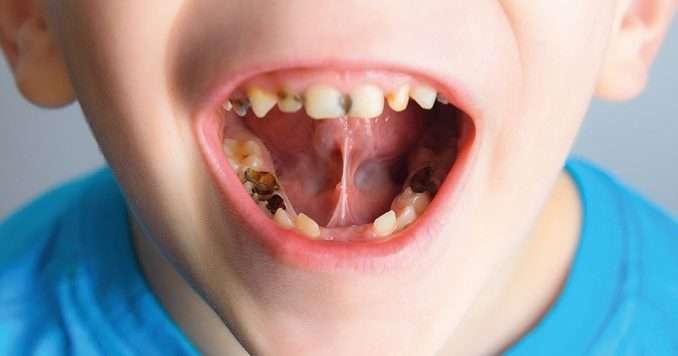
Dental cavities are holes in the tooth that develops when the harder part of the teeth wears down. The hard outer layer of the tooth is the enamel. Acid wears the enamel down. Cavities are among the most common health problems. Therefore, anyone can get cavities including children. If a dentist does not treat dental cavities, the infection develops deeper. This causes toothache which leads to tooth loss.
Symptoms of Cavities.
Symptoms depend on the location of the infection and also the extent of the infection. One may not have symptoms when the cavity begins. However, as the infections deepen, the signs and symptoms start to appear. They include;
- Toothache.
- Tooth sensitivity.
- Pain when you bite.
- Holes in the tooth.
- Brown or black staining at the surface of the tooth.
- Sharp pain when you eat or drink something hot or cold.
One should visit a dentist whenever they experience a toothache or a sharp pain in the mouth. However, regular dental checkups and cleanings are very important.
Causes.
- Poor oral hygiene. This occurs when one does not regularly clean their teeth.
- Bacteria and acids that come in contact with the teeth.
- Location of the tooth can cause dental caries.
- Eating a lot of sugar and starches
The following is the process of tooth decay;
1.Plaque forms.
Plaque is a sticky substance that coats the teeth. This is from eating a lot of sugar and starch. When a person does not properly clean the tooth, bacteria feed on them and form plaque.
2.Plaque attacks.
The plaque removes minerals from the enamel. This causes tiny holes in the enamel. Once the enamel is worn out, the bacteria reach the next level of the tooth. This is the dentin. It is softer than the enamel. If the acid reaches the dentin, the sensitivity of the tooth occurs.
3.The destruction continues.
The acid and bacteria continue to go deeper and move to the inner tooth material. This is called the pulp. It contains nerves and blood vessels. Once the bacteria reach the pulp, it presses the nerve which causes pain.
- Corey Anderson (fighter) Bio-Wiki, Age, Children, Wife, career.
- Who is Natalee Holloway, family, siblings, disappearance?
- Carla Wade age, edu, family, children, husband, net worth.
- Who is Paolo Macchiarini, age, family, children, Imprisonment?
- Elizabeth Hopkins Bio, Wiki, DC Now News, Age, Education, Family, Children, Husband, Net Worth, and Career
- Dave Froehlich bio-age, KTBC-FOX 7, children, wife, net worth.
- Kelcey Carlson Wiki, age, children, husband, net worth, Fox9.
How to prevent Dental Caries.
- Frequent brushing with fluoride toothpaste after meals and drinks.
- Visit the dentist regularly.
- Rinse the mouth.
- Eat tooth healthy food.
- Avoid snacks and sugary items.
- Floss the teeth at least twice a day.
- Receive fluoride treatments that are recommended by dentists.
- Use of antiseptic mouthwash.
- Avoid sticky foods.
- Kenya Medical Training College, courses, requirements.
- A list of special secondary schools, and contacts.
- Public Universities in Kenya
- What is the history of Kenyatta University?
- Bay head elementary school history, enrolment, programs offered.
- Best Public High Schools in Kiambu County.
- How is The Lenana Boy school and location?